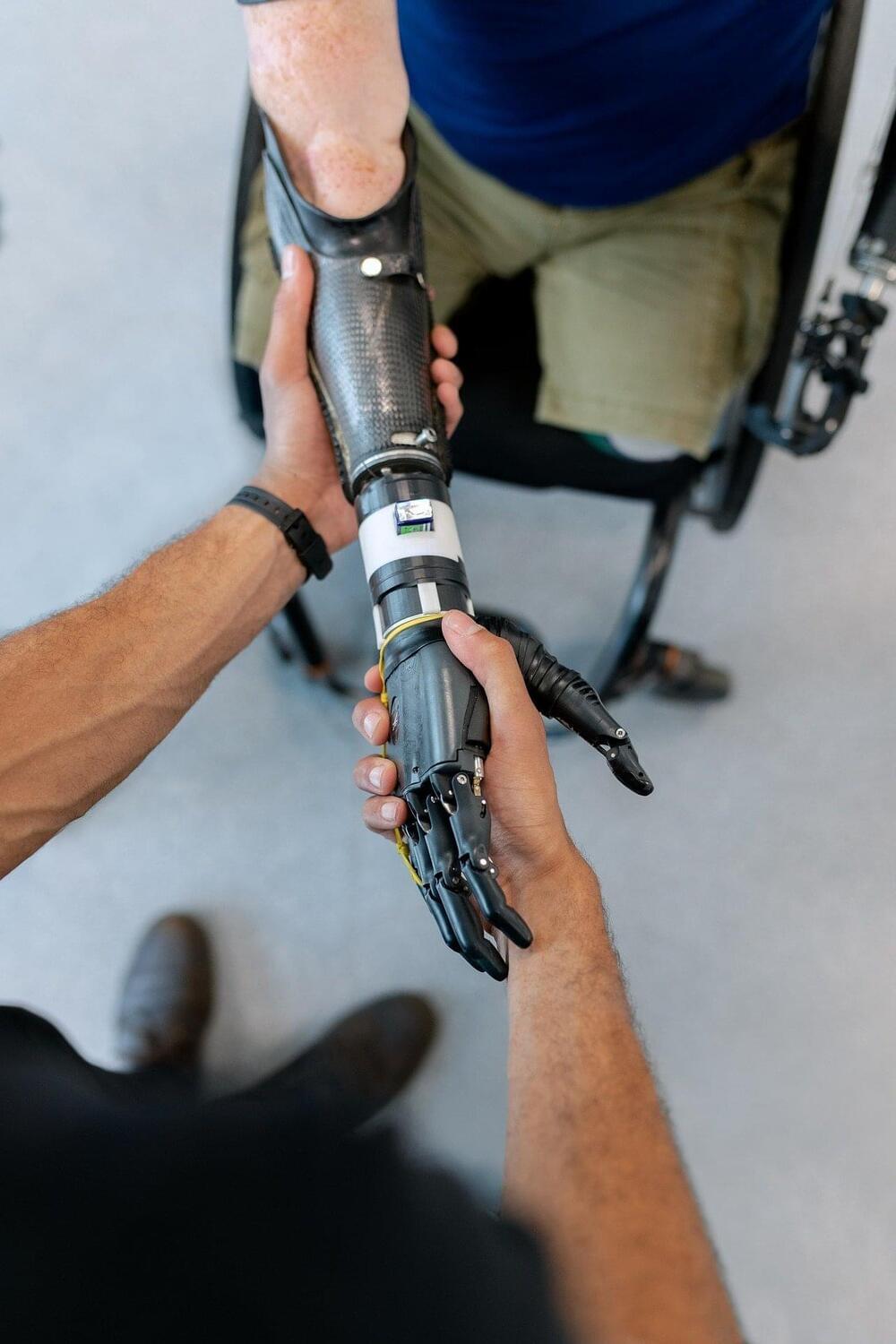For people with motor impairments or physical disabilities, completing daily tasks and house chores can be incredibly challenging. Recent advancements in robotics, such as brain-controlled robotic limbs, have the potential to significantly improve their quality of life.
Researchers at Hebei University of Technology and other institutes in China have developed an innovative system for controlling robotic arms that is based on augmented reality (AR) and a brain-computer interface. This system, presented in a paper published in the Journal of Neural Engineering, could enable the development of bionic or prosthetic arms that are easier for users to control.
“In recent years, with the development of robotic arms, brain science and information decoding technology, brain-controlled robotic arms have attained increasing achievements,” Zhiguo Luo, one of the researchers who carried out the study, told TechXplore. “However, disadvantages like poor flexibility restrict their widespread application. We aim to promote the lightweight and practicality of brain-controlled robotic arms.”









Comments are closed.